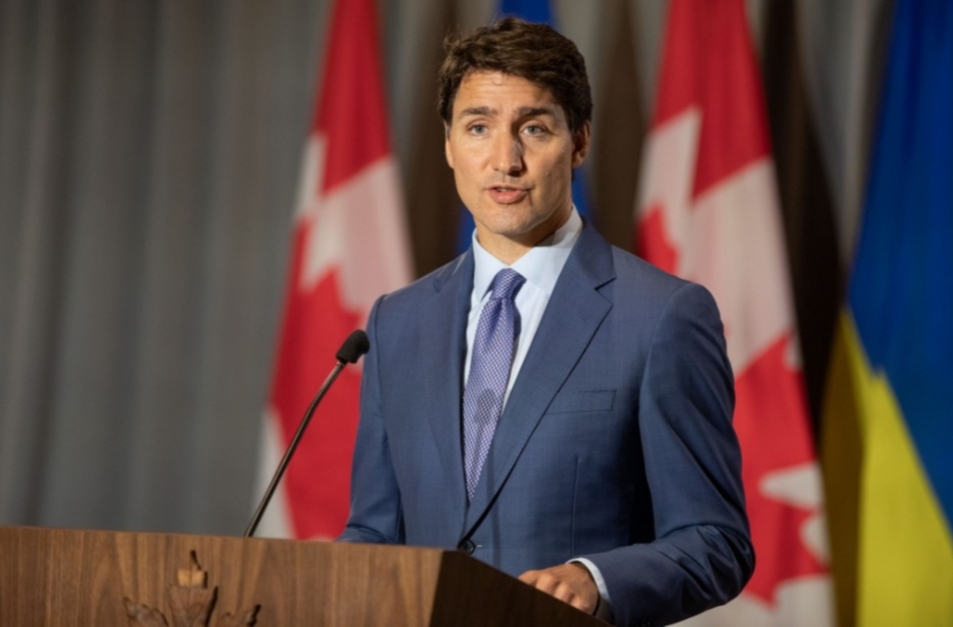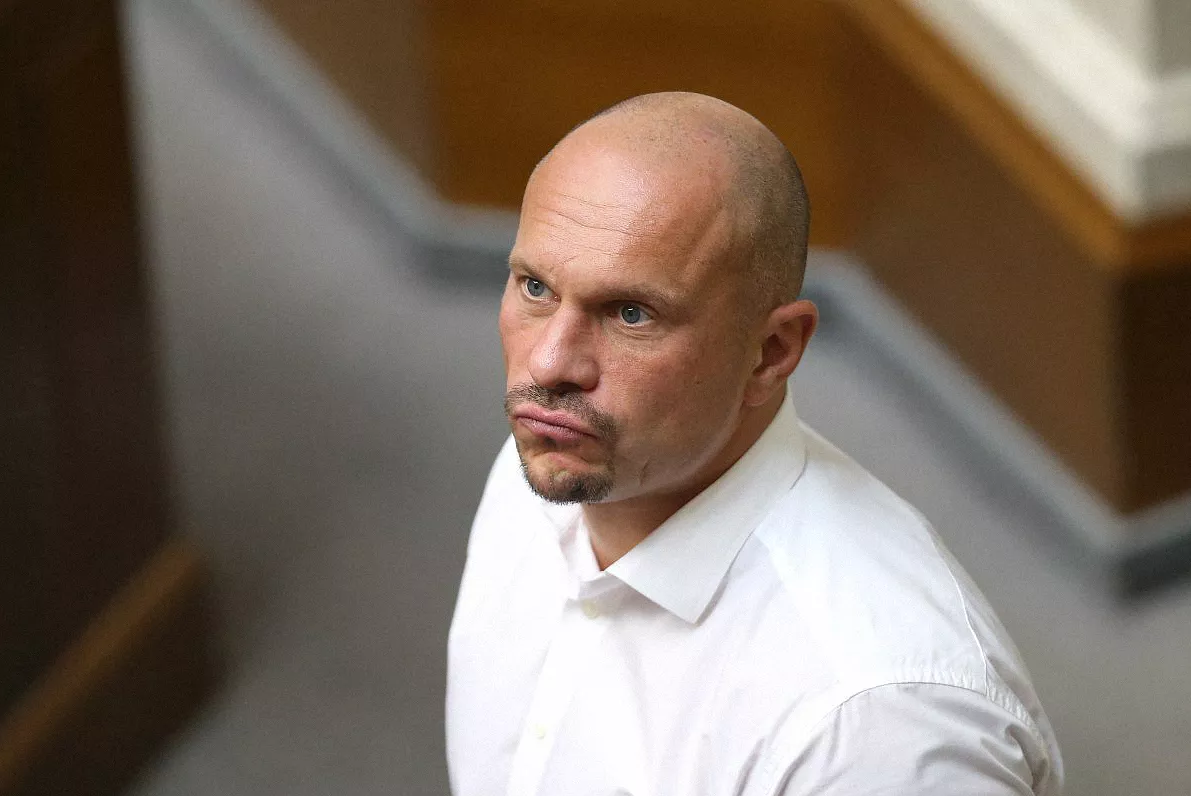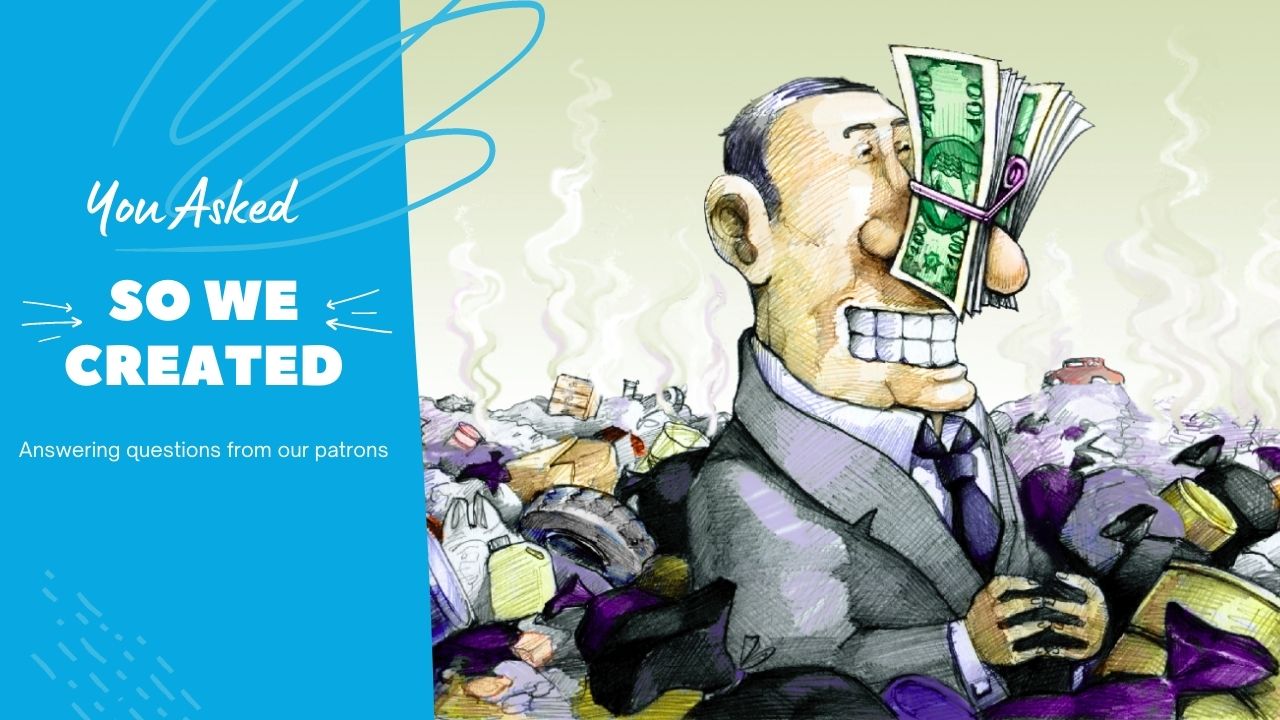Justifying the corrupt actions of the Odesa mayor Hennadiy Trukhanov, allowing the runaway MP Renat Kuzmin to run for parliamentary elections, revoking the decommunization renaming of two major Kyiv avenues, and opening a case against an airline presenting competition to the monopolist Ukraine International Airlines based on false witness evidence. These are only several recent decisions of Ukrainian courts that caused public outrage. Just recently, on 26 July, the National Anti-Corruption Bureau head revealed that judges of the notoriously ill-famed Kyiv District Administrative Court had attempted to torpedo the judicial reform, using their connections to appoint politically loyal members of the qualification commission assessing the integrity of all other judges - essentially preserving the status quo of Ukraine’s corrupt judiciary which all too often serves political interests. As well, judge Vovk had shielded the judges of his Administrative Court from a fair review by creating artificial obstacles for the commission - essentially, preserving the status of this infamous court as a place to rubber-stamp politically motivated decisions.
Additionally, the courts are being accused of facilitating the return - and revenge - of representatives of the Yanukovych regime which had fled Ukraine after the Euromaidan revolution but are now coming back in droves. Zelenskyy’s ascent to power has often been named as the reason these forces are returning, so Ukrainian judges, who have traditionally displayed loyalty to the president, are thought to be implicated in the return of the old guard as well. We will examine whether there are reasons to believe this a bit later.
Recent controversial decisions of Ukrainian courts
Let’s start with the controversial decisions Ukrainian courts made during the last year. On 26 February, the Constitutional Court of Ukraine made a decision which rolled back part of the achievements the country had made in fighting corruption. In particular, it ruled to recognize an article of the Criminal Code which foresaw responsibility for illegal embezzlement to be unconstitutional.
On 5 February, Kyiv’s District Administrative Court forbade Uliana Suprun – hailed by many as one of the few truly reform-minded public servants left in Ukraine – to perform her duties as Acting Health Minister. The decision again pointed to the problems within Ukraine’s judiciary. In particular, the many judges and courts that are ready to make politically motivated decisions. Because of the public outrage this decision provoked, the court rolled back its decision.
On 11 December 2018, Ukrainian society was rocked by the news of Roman Nasirov, ex-head of the State Fiscal Service of Ukraine who is suspected of causing UAH 2bn ($73.7mn) of damage to the state, being reinstated to his previous position.
Together with these events, many sitting judges – who during the Euromaidan Revolution were ready to legalize crimes committed during the regime of runaway president Viktor Yanukovych
, and prosecuted protesters, jailed them, deprived them of their driving documents, and conducted other restrictive measures – remained in the system.
Also, according to civil society organizations involved in the reform, 44 of 193 judges appointed to the new Supreme Court have a tainted reputation.
All of these “achievements” of Ukraine’s judiciary took place before the 2019 presidential election, which leads to the conclusion that there was something already wrong with the judicial system in Ukraine before Zelenskyy took power.
What the judicial reform foresaw

Judicial reform was one of those that Ukrainian society demanded the most after the Euromaidan revolution. Key changes have started to be implemented by adopting three major laws: Restoring Confidence in Ukraine’s Judicial Authority (1188-VII), the Lustration Law (1682-VII), and Assuring the Right to a Fair Trial (192-VIII).
The reform officially launched in September 2016 when the Constitutional amendments and the Law On Judicial System and Status of Judges came into force. The reform required raising salaries for judges, liquidating a number of courts, and creating new ones. All the courts which were not reformed would be subject to recertification.
Judges’ lifestyle, levels of expenditures, and family ties would need to be monitored. Opportunities for new people outside the system to become judges were to be considered.
Probably, the most promising change involved the participation of representatives of society in the reform process. In particular, the Public Integrity Council (PIC), a civil society watchdog, was created. Its role was to assist the High Qualification Commission of Judges (HQCJ), the body of judicial self-governance, in assessing the professional ethics and integrity of judges.
In particular, when the first competition to the new Supreme Court was initiated, PIC was already raising the alarm on the large number of dishonest judges being approved by HQCJ – despite PIC’s negative conclusions.
The situation became even worse when the qualification assessment of judges began. The relationship between the societal body and the qualification commission was shattered when HQCJ again summarily ignored PIC’s negative conclusions on judges. As a result, the first contingent of PIC members withdrew from the process, continuing to evaluate the judges’ integrity and professional ethics on their own. They stated they were reacting to the commission’s reluctance to legitimize the results of the assessment.
Meanwhile, at the end of his term, then-president Petro Poroshenko was flaunting off the judicial reform as one of his achievements. Although the main reform laws were indeed drafted by Poroshenko's administration, activists protested his failure to implement the reform. Many judges remained politically dependent and, in effect, compromised. Only later did the ex-president recognize that the reform was not adequately implemented.
At the end of his administration, Poroshenko stated
that one of his major concerns was that the courts of first instance were the least reformed among key institutions. He maintained that one term was not enough to complete these reforms. But was the lack of time indeed the issue?
The symbol of the unreformed system

One such court of first instance, the Kyiv District Administrative Court, is known for its many scandalous decisions and can readily serve as an example of unreformed courts. It is the court which considers appeals for the actions of state bodies and local self-governance bodies; makes decisions on public service; approves appointments and dismissals of its own members; examines cases concerning the election process; and oversees other important judicial matters.
In December 2017, then-president Poroshenko made a number of decisions on the liquidation of courts. Liquidating the Kyiv District Administrative Court was planned and agreed upon with the High Council of Justice (HCJ), another judicial self-governance body.
The civil movement CHESNO, known for its critical analysis and forthright evaluation of politicians, gathered these transgressions into a report. Among them were:
- legitimizing the dispersal of the Euromaidan protests;
- blocking investigations on high-profile corruption;
- stopping competition for the position of the head of customs;
- blocking reform within its own functioning.
"If this court should not be liquidated, then I don't know what to say about the others," Mykhailo Zhernakov, Chairman of the Board of the DEJURE Foundation and the member of the PIC commented to Euromaidan Press.
The qualification assessment of judges of the court was to take place 2017-2018. The ways in which judges avoided the assessment are worthy of a comedy script. It was only in March 2018 that the first seven judges were assessed and passed. The assessment of another 39 judges was set for July 2018, however the head of the court asked to postpone the process because the court was overloaded at that time. The HQCJ postponed it to April 2019, for 37 judges.
However, in April, the head of the court asked to postpone again. Only seven judges had come to the assessment in April, the other 30 claimed illness. The commission then set the procedure for 21 May. Again, only three judges came. Thus, what was supposed to be a one-year process, has so far taken more than two years, with limited results.
On 26 July 2019, all the complaints of civil society about the court received additional confirmation when the National Anti-Corruption Bureau together the Prosecutor General Office conducted searches in it. The law enforcers stated that they are investigating whether the court interfered in the work of the HQCJ and obstructed the qualification assessment. Also, the Anti-Corruption Bureau released tapes which allegedly contain conversations of the court's judges. On them, they are heard clearly interfering with the work of other state bodies.
Even without the recent investigation, civil society has been pointing out the problems with the court for years. However, it is just the part of a systemic problem. And NGOs involved in the judicial reform stress that it needs to be addressed systematically.
The top problems
During and after the attempted reform, civil society organizations pointed out the main obstacles for real change. Half of the two bodies of judicial self-governance – the HQCJ and the HCJ – consists of judges selected by judges. Predictably, few of these judges are interested in appointing people legitimately wanting change. Their goal has always been exactly the opposite, to keep everything as it is.
This explains why some 3,000 judges successfully passed the qualification assessment and only 15 have been dismissed. Apart from maintaining their position, judges who passed the assessment will also receive a raise in salary.
Zhernakov puts the joint responsibility for the failed judicial reform on the two bodies of judicial self-governance and on ex-president Poroshenko.
“Poroshenko had all the instruments to turn the HQCJ and the HQJ into capable bodies. If he used these instruments, we would not have been observing such decisions we see now,” said Zhernakov.
The core issue, according to the expert, is that the system itself has never been independent, but has always been directed at serving political interests. Some courts have already conveyed signs of their support to new politicians. However, it’s too early to tell whether those in power are responding.
“So far those in power are busy with the elections. The more there is a vacuum of power, the more the courts make absurd decisions,” Zhernakov stated a few days before the snap parliamentary elections on 21 July.
Earlier, Zhernakov drew attention
to factors that might have revealed Zelenskyy’s desire to control the system as much as Poroshenko had. Particularly, Zelenskyy had canceled Poroshenko’s decrees on appointing HCJ members and appointed people to the new commission to select the new members. These commission members are not perceived as reformers, rather as representing the same old system.
The result of the competition itself will reveal the true intentions of the new president.
Zelenskyy’s absence of reaction to the recent incident with the Kyiv District Administrative Court is also indicative. On Monday, 29 July, two days after the incident, civil society representatives lamented the silence of the new powers and stressed that the persons involved can escape the country. In this regard, civil society members released a statement demanding to urgently issue suspicion notices to the implicated persons, to properly investigate the case and eventually to liquidate the court. It is noteworthy that Liudmila Denysova, the Parliament Commissioner for Human Rights has also been involved in the scandal. The head of the Anti-Corruption Bureau informed that the head of the court Pavlo Vovk interfered with the appointments of the HQCJ members from the quotas of the State Judicial Administration and the office of the ombudsman. During the appointments, Denysova in her turn took into consideration Vovk's preferences in exchange for the cancelation of the three protocols of the National Agency on Corruption Prevention.
Therefore, the statement also demands Denysova's dismissal.
"This is the moment of truth, of checking whether those in power are ready for real, not cosmetic changes, or for the opposite - for rolling back [all the achievements]," says the statement.
The cases on top corruption
When on 9 July, the Odesa Malinovsky District Court delivered an acquittal to the scandalous Odesa Mayor Hennadiy Trukhanov, some again related the action to the change of power in the country. However, representatives of civil society organizations had much earlier warned of just such a scenario.
Trukhanov and a few officials from his inner circle were accused of embezzling some UAH 92 mn ($3.62 mn) from Odesa local budget funds July-December 2016, when buying the bankrupt the Odesa Kraian factory at an inflated price.
Exactly such an outcome had been predicted. In January 2019, the Anti-Corruption Action Centre (AntAC) NGO pointed to the highly rapid review of the case by the Odesa court. During a single day, the court examined nine out of 67 books related to the case and started on 10 more. This was equivalent to some 1,700 pages.
The AntAC representatives stated that the rushed examination was needed to prevent it from getting to the newly-created High Anti-Corruption Court. The new court’s launch is scheduled for early September 2019. Its composition of judges suggests that cases will be considered fairly.
Civil society organizations are credited with the creation of the special court for anti-corruption. They considered it mandatory after observing the ineffective work of ordinary courts in top corruption cases. To ensure the new court’s independence, NGOs involved in reform together with Ukraine’s international partners necessitated the participation of international experts.
As a result, Ukraine’s bodies of judicial self-governance were not able to ignore the international experts in the same manner they had ignored representatives of Ukraine’s civil society. The process was followed carefully by international partners.
The competition for judicial positions has been praised both by Ukraine’s partners and civil society. They are optimistic that judges of the new court will deal with top-corruption cases in a just manner.
To heal the system

After the presidential elections, a total of 18 NGOs proposed an Agenda for Justice for the political parties to follow. Prior to the snap parliamentary elections, five parties supported it. Among them were Servant of the People (Sluha Narodu), Fatherland (Batkivshchyna), and Voice (Holos), all of which were subsequently voted into parliament.
According to Zhernakov, the number one priority of Agenda for Justice is to relaunch the HQCJ and the HCJ, with the help of international experts.
The agenda will face many challenges in the months ahead. Among them will be:
- reconsidering the ambivalent decisions of the HQCJ, regarding the positive assessment of dishonest judges;
- creating a mixed court for the resolution of commercial disputes, with the participation of independent professional arbitrators;
- developing alternative ways of dispute resolutions, such as mediation and arbitration
- implementing world standards in judicial education;
- holding transparent competitions for the positions of the Constitutional Court judges.
After the tumultuous elections, returning to the daily challenge of inner processes is welcome for many. This is especially true in regard to judiciary reform which underlies all areas of life in Ukraine. Zelenskyy’s position on reform is long-awaited and will be crucial. He can either implement key reforms for real change, or follow the path of his predecessors and manipulate the courts against his opponents, and to his favor.





